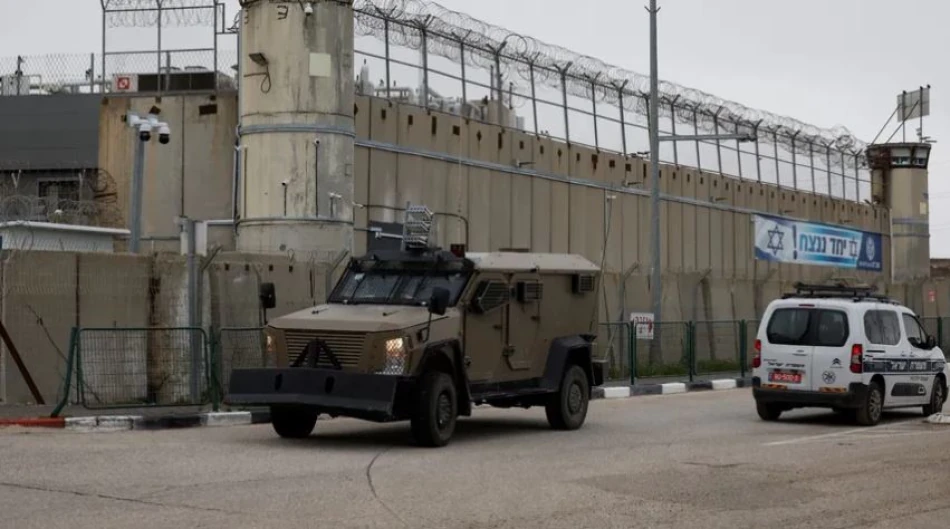
Israeli Court Acknowledges Palestinian Prisoners' Starvation: A Rare Admission
Israeli Supreme Court Orders Government to End Food Deprivation of Palestinian Prisoners
In a rare wartime intervention, Israel's Supreme Court has ruled that the government illegally deprived Palestinian prisoners of adequate nutrition, ordering immediate improvements to food quality and quantity. The unanimous decision represents an unusual judicial challenge to government policy during the 23-month Gaza conflict, highlighting deteriorating conditions that have allegedly contributed to at least 61 Palestinian deaths in Israeli custody since the war began.
Unprecedented Judicial Intervention During Wartime
The Supreme Court's decision marks a significant departure from its typically advisory role during military operations. According to legal observers, the court rarely opposes government measures during active conflicts, making this ruling particularly noteworthy. The three-judge panel's unanimous verdict suggests the evidence of food deprivation was compelling enough to override usual wartime judicial deference.
The court explicitly stated that prisoners must receive three daily meals to ensure "minimum survival conditions," emphasizing that the ruling addressed basic human needs rather than comfort or luxury. This language indicates the court found conditions had deteriorated to life-threatening levels.
Civil Rights Groups Challenge Prison Conditions
The Association for Civil Rights in Israel (ACRI) and the Israeli rights group Gisha filed the petition last year, documenting systematic food restrictions that allegedly caused malnutrition and hunger among Palestinian detainees. Their successful legal challenge demonstrates how domestic human rights organizations can pressure government policy even during wartime.
The groups' documentation likely included medical evidence and testimony showing the health impacts of reduced food rations, providing the court with concrete data to support its intervention.
Mounting Death Toll Raises International Concerns
Palestinian authorities have recorded at least 61 deaths of Palestinians in Israeli custody since October 2023, with medical professionals attributing some fatalities to malnutrition. The death of a 17-year-old Palestinian boy in March, which doctors linked to starvation, likely influenced the court's decision to act.
These figures represent a significant increase in custody-related deaths compared to pre-war periods, suggesting systematic changes in detention conditions rather than isolated incidents. The mortality rate raises questions about Israel's compliance with international detention standards during the conflict.
Political Resistance to Judicial Mandate
National Security Minister Itamar Ben-Gvir immediately criticized the ruling and vowed that his prison policies would remain unchanged, setting up a potential constitutional crisis. Ben-Gvir's defiance reflects broader tensions between Israel's judiciary and right-wing government ministers who have advocated for harsher treatment of Palestinian prisoners.
This resistance echoes similar confrontations over judicial authority that have characterized Israeli politics in recent years, though the wartime context adds additional complexity to the dispute.
International Legal Implications
The court's findings could strengthen international legal cases against Israel regarding treatment of Palestinian detainees. The explicit judicial recognition that the government violated minimum survival standards provides documented evidence of systematic mistreatment that international courts and human rights bodies may reference.
The ruling also demonstrates that Israel's own legal system acknowledges problems with detention conditions, potentially undermining government arguments that all policies comply with international law. This internal legal validation of abuse allegations may prove more damaging than external criticism alone.
Most Viewed News

 Sara Khaled
Sara Khaled






